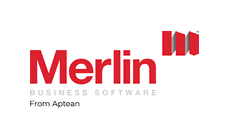New fuel scale charge flat rates apply from next week
The fuel scale charge is one option for accounting for VAT where an employer pays for fuel costs and there is a mix of business and private use. The figures you have to use will change from 1 May. What do you need to know?

Using the fuel scale charge means you can reclaim VAT on all fuel costs, including that for private travel. However, you must then account for VAT on a notional sale of fuel set by HMRC (the scale charge) which varies according to the CO2 emissions of each car. The higher the CO2 figure, the greater the charge. If there’s more than one vehicle, a scale charge applies for each. The scale charge reduces your paperwork for each quarter, as there's no need to keep detailed mileage records. As an added perk, there will be fewer records for an officer to pick through in the event of a business records check.
On the downside, the scale charge can be inefficient if the private mileage is relatively low. In these circumstances you may be better off if you require employees to keep detailed records, or have them reimburse the private proportion. If you do want to use the scale charge, ensure you change the flat rate with effect from 1 May as these have now been published.
Related Topics
-
Government rushes through NI cap on pension salary sacrifice
The government has already drafted legislation to impose a £2,000 limit on NI exempt pension contributions under salary sacrifice arrangements. What else do we know?
-
Sneaky change is a blow for side hustles
With most of the media focused on the headline-grabbing announcements from the Budget, a read of the published small print reveals another change coming in 2029. It’s bad news if you are an employee with a side hustle, but what’s going on?
-
Dodging the 2027 IHT and pension changes
In a little over a year the inheritance tax (IHT) exemption for unused pension savings comes to an end. If you’re married or in a civil partnership, one simple step might save your estate thousands in IHT. What is it?







 This website uses both its own and third-party cookies to analyze our services and navigation on our website in order to improve its contents (analytical purposes: measure visits and sources of web traffic). The legal basis is the consent of the user, except in the case of basic cookies, which are essential to navigate this website.
This website uses both its own and third-party cookies to analyze our services and navigation on our website in order to improve its contents (analytical purposes: measure visits and sources of web traffic). The legal basis is the consent of the user, except in the case of basic cookies, which are essential to navigate this website.